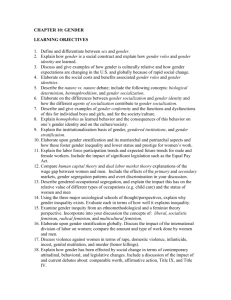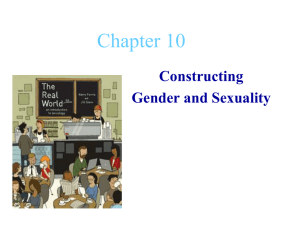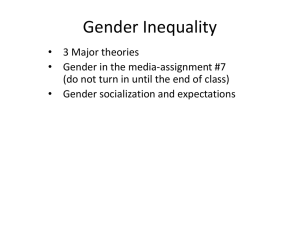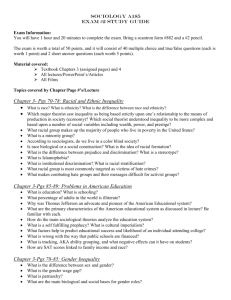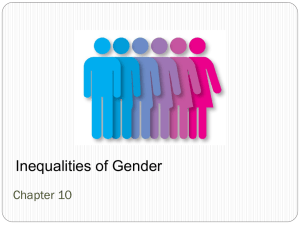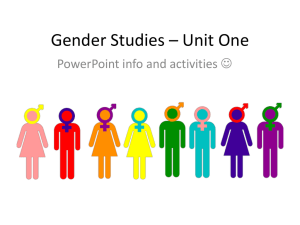Gender Socialization - People Server at UNCW
advertisement
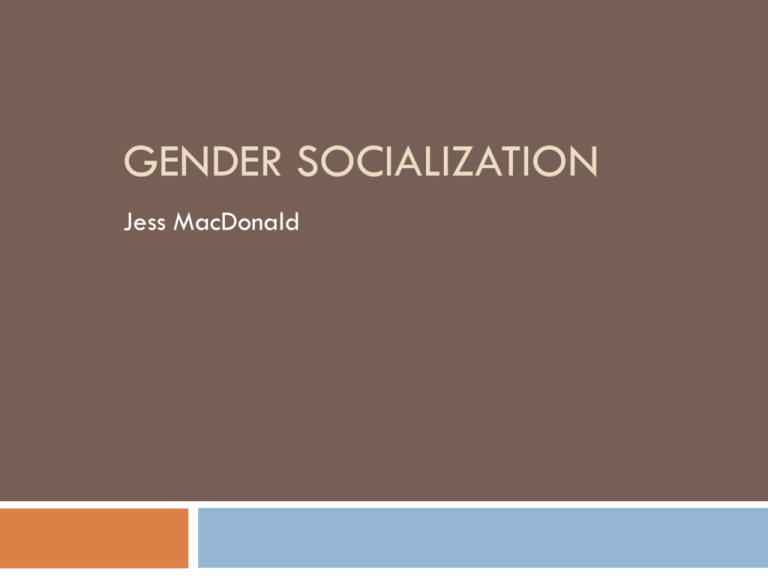
GENDER SOCIALIZATION Jess MacDonald The Historical Context of the Study of Gender Feminism: The belief that women and men are or should be equal 3 Waves of Feminism: 1st Wave: 1848-1920 (political rights) Seneca Falls Convention “We hold these truths to be self-evident: that all men and women are created equal” 19th Amendment 2nd Wave: 1960s-1970s (social/civil rights) 3rd Wave: 1980s-present (economic rights) Feminist Theory and the Study of Gender Broad wide ranging theories that look at social phenomena and ask: What about the women? Why are the structures set up the way they are? How can we change it? Sex vs. Gender Sex The biological characteristics that differentiate women and men (XX or XY Chromosome) Gender The socially constructed patterning of masculinity and femininity, and of relations between women and men “Doing Gender”: Socializing Gender in Society Doing Gender: (West and Zimmerman, 1987) the ongoing process through which people create gender for themselves and others by acting and appearing the way we “should” as men and women. Gender as a social construction Symbolic interaction Significant Others Birth Parents Mead: Play stage Education System/ Teachers Women and Men Women and Men Women and Men? Socialization: The Importance of Peers and Others in Society Cognitive categorization into one group of the other Gender expectations for women and for men Sanctions for not behaving the way a man or woman is supposed to behave Socialization: The Media Film, TV, advertising Reinforce men’s and women’s roles Jean Kilbourne: Killing Us Softly Implications of Gender and Gender Inequality Violence against women Around 18% of American Women have been raped But 1 only 26%-37% of rapes are reported in 4 college women will survive an attempted or completed rape A woman is battered every 15 seconds in America Implications of Gender and Gender Inequality Disordered Eating 50% of girls 11-13 feel that they are overweight 8 million people in the US have an eating disorder 7 million women 1 million men 1 in 200 women in the US have anorexia nervosa Eating disorders have the highest mortality rate out of any mental illness Implications of Gender and Gender Inequality Prohibits gender equality: Family and Home relations Work and economic opportunity

